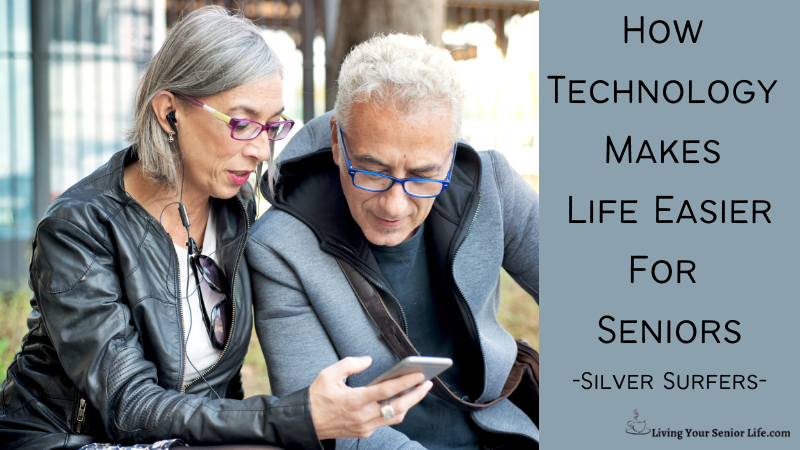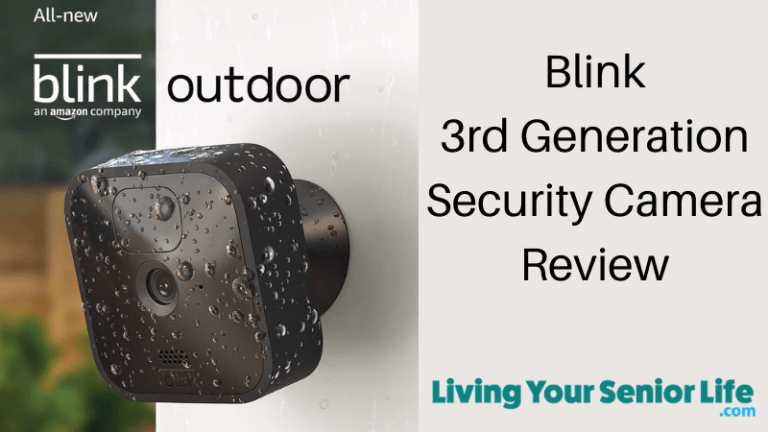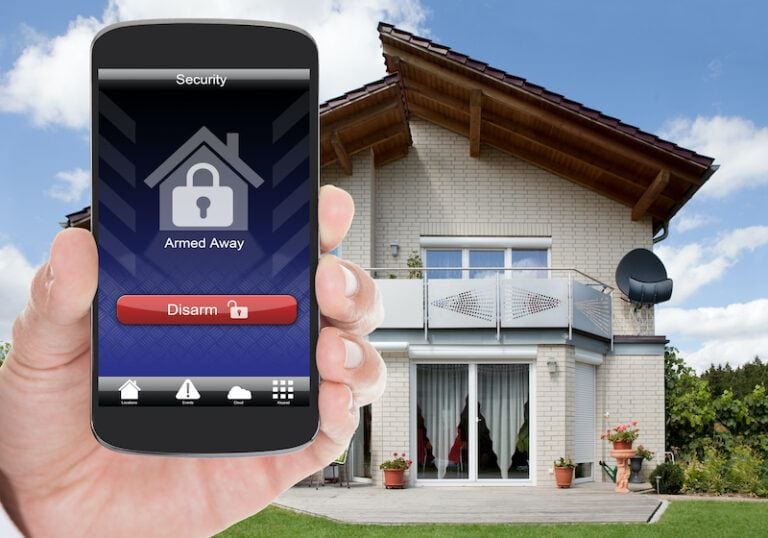As you age, you may find it increasingly difficult to perform everyday tasks. Fortunately, technology makes life easier for seniors by providing solutions to help with health management, mobility, communication, learning, entertainment, and more. With the use of technology, seniors can maintain their independence and improve their quality of life.
The role of technology in aging cannot be overstated. Health management and medical technologies such as wearable fitness devices, medication reminder apps, and telemedicine services are making it easier for seniors to monitor their health and receive timely medical attention. Mobility and accessibility solutions such as stairlifts, wheelchair ramps, and smart home devices are also helping seniors to stay mobile and safe in their own homes.
Communication and social engagement are important aspects of maintaining mental and emotional health. Technology has made it easier for seniors to stay connected with loved ones through video calls, social media, and messaging apps. Learning and cognitive support technologies such as brain-training apps and online courses are also helping seniors to keep their minds sharp and active. Entertainment and leisure technologies such as e-readers, streaming services, and virtual reality headsets are providing seniors with new ways to enjoy their free time.
Whether you’re a senior curious about the benefits of technology, a caregiver seeking ways to improve the life of your loved one, or simply someone interested in the intersection of technology and senior living, this article is for you.
Key Takeaways:
- Technology can greatly improve the quality of life for seniors by providing solutions for health management, mobility, communication, learning, and entertainment.
- Health management and medical technologies such as wearable fitness devices and telemedicine services are making it easier for seniors to monitor their health and receive timely medical attention.
- Communication and social engagement technologies such as video calls and messaging apps are helping seniors to stay connected with loved ones and maintain their mental and emotional health.
Why Technology Matters for Seniors
As you age, it becomes increasingly important to maintain your independence, safety, and social connections. Fortunately, technology has made this easier than ever before. In this section, we will explore the ways in which technology can support aging, including supporting independent living, enhancing safety and security, and fostering social connectivity.
Enhancing Communication
Maintaining regular contact with loved ones can be challenging for seniors, especially if they live far away. However, technology has made this easier than ever before. Smartphones and tablets loaded with user-friendly apps like WhatsApp, Facebook, and FaceTime allow seniors to connect with their loved ones through instant messaging, voice calls, or video chats from the comfort of their own homes. This technology has become an indispensable tool for seniors, making distances seem negligible and enhancing social connections.
Facilitating Access to Services
Technology has also simplified access to various services, thus facilitating convenience and independence for seniors. With just a few taps, seniors can do online shopping, manage banking transactions, or even consult a doctor via telemedicine platforms. These capabilities reduce the need for mobility and eliminate the stress associated with arranging transportation or navigating crowded places. By providing access to these services, technology empowers seniors to live more independently and comfortably.
Contributing to Health and Safety
Technology plays a significant role in seniors’ health and safety. Medical alert systems, health apps, wearable fitness devices, and medication reminder apps are just some of the technologies that make life easier for seniors. These technologies enable timely health monitoring, quick emergency response, and consistent medication intake, ensuring seniors stay healthy and safe. By providing access to these technologies, seniors can better manage their health and reduce the risk of developing health conditions.
Overall, technology plays a critical role in seniors’ lives, enhancing communication, facilitating access to services, contributing to health and safety, and fostering independence. By providing access to these technologies, seniors can live more comfortably, stay connected with loved ones, and manage their health more effectively.
Video: How Technology Makes Life Easier for Seniors
Key Technologies for Seniors
Communication Technology
Smartphones and Tablets

Smartphones and tablets are powerful tools that can help seniors stay connected with family and friends. With these devices, you can easily make phone calls, send text messages, and even video chat with loved ones who live far away. Additionally, many smartphones and tablets come equipped with voice assistants like Siri or Google Assistant, which can help seniors with mobility or vision issues navigate their device more easily.
Smartphones and tablets like the Jitterbug Smart2 or the GrandPad are designed with seniors in mind, offering simplified interfaces, larger icons, and easier navigation.
Social Media and Online Communities
Social media and online communities are another great way for seniors to stay connected with others. Platforms like Facebook and Twitter allow seniors to keep in touch with friends and family members, while also providing a way to connect with people who share similar interests. There are also many online communities specifically designed for seniors, such as SeniorChatters, which provide a safe and welcoming space for seniors to connect with others.
Video Calls and Messaging Apps

Video calls and messaging apps are becoming increasingly popular among seniors, as they provide a way to connect face-to-face with loved ones who live far away. Apps like Skype, Zoom for Facetime allow seniors to have video calls with multiple people at once, making it easy to have virtual family reunions or catch up with friends. Messaging apps like WhatsApp and iMessage also provide a way to stay connected with loved ones throughout the day, without the need for a phone call.
Health and Safety Technology
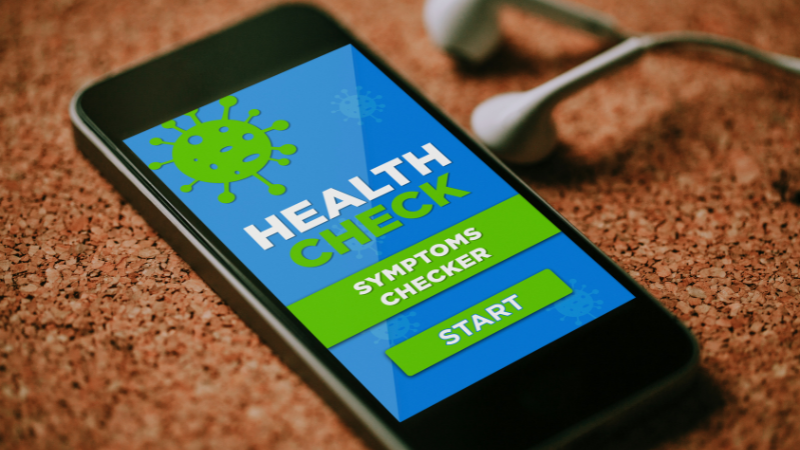
Medical alert systems, health apps, and wearable fitness devices are some of the technologies that make life easier for seniors by enabling timely health monitoring and quick emergency response. These devices can track vital signs, detect falls, and send alerts to caregivers or emergency services when necessary.
Medical Alert Systems
Medical alert systems like Life Alert or MobileHelp can be lifesavers in emergencies. With just a push of a button, these devices connect to a 24/7 monitoring center, ensuring help is always available.
Health Apps and Wearable Devices
Health monitoring devices, apps and wearable devices like the Fitbit or Apple Watch have become increasingly popular in recent years. These devices can track your heart rate, sleep patterns, and physical activity, giving you valuable insights into your overall health. Some devices even have fall detection and emergency SOS features, which can be life-saving in the event of an accident.
Medication Management
Managing multiple medications can be a challenge, especially for seniors. Fortunately, there are several medication management applications available that can help you stay on top of your medications. These apps can remind you when to take your medications, track your dosage, and even send notifications to your loved ones or healthcare provider if you miss a dose. Some apps can also help seniors refill their prescriptions and provide information about potential side effects.
Telemedicine and Video Conferencing
Telemedicine and video conferencing have become increasingly popular in recent years, especially in light of the COVID-19 pandemic. These technologies allow you to connect with your healthcare provider from the comfort of your own home, eliminating the need for in-person visits. This is especially useful for seniors who may have difficulty traveling to appointments or who live in remote areas.
Entertainment and Learning Technology
As you age, it’s important to stay engaged with the world around you and continue to enjoy your hobbies and interests. Technology can make this easier than ever before. Here are some ways that seniors can use technology for entertainment and leisure.
E-readers, Audiobooks and Streaming Services

Streaming services like Netflix and Hulu provide access to a wide range of TV shows, movies, and documentaries. E-readers like Kindle and Nook allow you to read books on a screen, which can be easier on the eyes than traditional books. These services can provide hours of entertainment without leaving your home. You can also find audiobooks and podcasts on these platforms, which can be a great way to pass the time while doing other activities like exercise or household chores.
Online Learning Platforms
As you age, it’s natural to experience some cognitive decline and memory impairment. Fortunately, technology can help you maintain and even improve your cognitive abilities. Here are some ways technology can support your learning and cognitive function:

Educational Applications and Online Learning
There are many educational applications and online courses available that can help you learn new skills and keep your mind active. These apps and courses cover a wide range of topics, from language learning to art history. Many of these resources are free or low-cost, making them accessible to anyone with an internet connection.
Some popular online learning platforms are Coursera, Udemy, and Khan Academy. These platforms offer courses taught by experts in their fields, and you can learn at your own pace. Additionally, there are many apps available for language learning, such as Duolingo and Babbel.
Cognitive Assistance Technologies
In addition to online learning resources, there are also many technologies designed specifically to support cognitive function. For example, there are apps that can help you remember important dates and appointments, such as Pill Reminder and MyTherapy. These apps can send you reminders when it’s time to take your medication or attend a doctor’s appointment.
Another type of cognitive assistance technology is brain-training apps. These apps are designed to improve your memory, attention, and other cognitive abilities. Some popular brain-training apps include Lumosity, Elevate, and Peak.
Gaming and Interactive Technologies
Gaming and interactive technologies can also be a great way to stay engaged and entertained. Many video game consoles offer games that are designed for seniors, which can help improve cognitive function and memory. Virtual reality (VR) technology can also provide immersive experiences that allow seniors to explore new places and activities without leaving their home.
Home Convenience Technology
Technology can also help you perform everyday tasks more efficiently. For example, you can use a voice-activated assistant like Amazon Alexa or Google Assistant to set reminders, make phone calls, or control your smart home devices. You can also use online shopping services like Amazon or Instacart to have groceries and household items delivered right to your door.
Smart Home Devices
Smart home technology can make life easier for seniors by automating tasks like turning off lights, adjusting thermostats, and locking doors. These devices can also improve home safety by detecting smoke, carbon monoxide, and other hazards.
Smart home devices like Google Home or Amazon Echo can automate various household tasks, such as controlling lights or appliances, playing music, reading the news, and more. These voice-activated gadgets can make everyday tasks easier and more convenient for seniors.
Motion sensors can be installed throughout your home, allowing you to control lights, appliances, and other devices with simple hand gestures. This can be especially helpful if you have mobility issues, as it eliminates the need to physically reach for light switches or other controls.
Robotic Vacuums
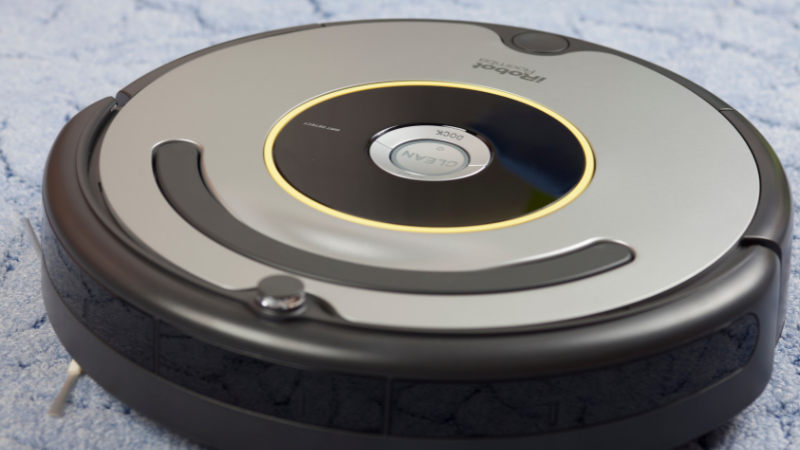
Robotic vacuums like Roomba or Neato can keep floors clean with minimal effort from the user. Smart lighting systems offer features like automatic dimming or timers, while smart security systems can provide real-time surveillance and alerts, contributing to a safer, more comfortable home environment for seniors.
Smart Lighting and Security Systems
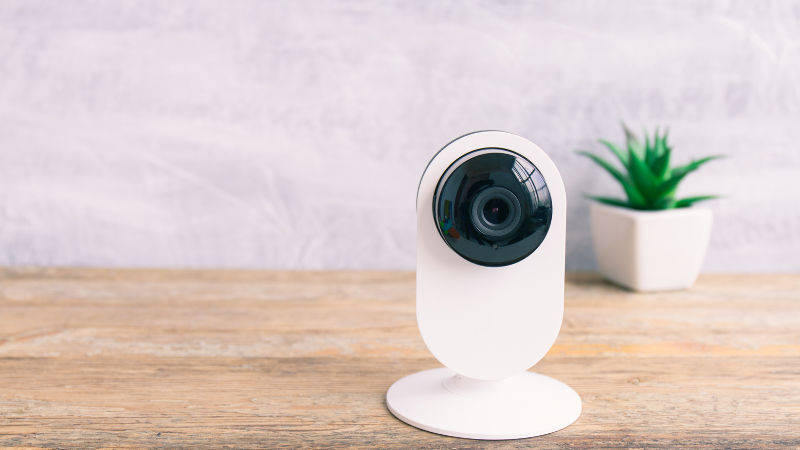
Smart home automation can also help you stay safe and secure. For example, you can install smart locks on your doors that can be controlled with your smartphone. This allows you to lock and unlock your doors from anywhere, giving you peace of mind knowing that your home is secure.
Smart lighting systems offer features like automatic dimming or timers, while smart security systems can provide real-time surveillance and alerts. Both contribute to a safer, more comfortable home environment for seniors.
Economic Considerations
Affordability and Access for Low-Income Seniors
One of the major concerns for seniors when it comes to adopting technology is affordability. Many seniors live on fixed incomes and cannot afford the latest gadgets. However, there are many affordable options available that can still provide significant benefits. For example, there are many low-cost smartphones that can be used to access the internet, make video calls, and use various apps. Additionally, many internet service providers offer discounted rates to low-income seniors.
Another issue is access to technology. Low-income seniors may not have access to the internet or may not know how to use it. There are many programs available that provide free or low-cost internet and computer training to seniors. For example, the Federal Communications Commission (FCC) offers the Lifeline program, which provides discounted phone and internet services to eligible low-income households.
Choosing the Right Technology for Seniors
When choosing technology for seniors, you should consider personal needs, comfort with technology, and budget. The best products are those that can seamlessly integrate into daily routines and provide meaningful benefits. Reading product reviews and exploring different options can be helpful in making an informed decision.
Tips for Seniors Starting with New Technology
Starting with new technology can be overwhelming, but taking small steps and being patient can make the process easier. Here are some tips to help you get started:
- Begin with a single device or app and learn its ins and outs before moving on to others.
- Seek help from family members, friends, or local tech training classes if you need assistance.
- Practice consistently to become proficient and comfortable with technology.
Remember, with patience and practice, you can become confident and knowledgeable with new technology.
FAQs
In this section, we’ll answer some of the most frequently asked questions regarding technologies that are making life easier for seniors. These answers provide a quick understanding of the essential aspects of senior-friendly technology, addressing common queries and concerns that many people share.
What is the best smartphone for seniors?

The best smartphone for seniors is one that is easy to use and has features that cater to their needs. Some smartphones, such as the Jitterbug Smart2 and the GrandPad, are designed specifically for seniors. They have simplified interfaces, larger icons, and easy navigation. These features make it easier for seniors to use smartphones and stay connected with their loved ones.
How can technology help seniors live independently?

Technology can help seniors live independently by automating routine tasks, ensuring quick help in emergencies, and facilitating shopping, banking, and medical consultations from home. Smart home devices like Amazon Echo and Google Home can help seniors control their homes with their voice, while medical alert systems like Life Alert can ensure quick help in emergencies. Online platforms like AARP’s Life Reimagined can help seniors find new hobbies and interests, fostering social interactions and reducing feelings of isolation.
In what ways do smart home technologies enhance safety and comfort for seniors?
Smart home technologies such as smart locks, smart thermostats, and smart lighting can enhance safety and comfort for seniors. These technologies enable seniors to control their home environment with ease, even if they have mobility or vision impairments.
For instance, smart locks can be programmed to unlock automatically when seniors approach the door, while smart thermostats can adjust the temperature based on seniors’ preferences. Smart lighting can also be controlled remotely or through voice commands, making it easier for seniors to navigate their home safely.
Additional Reading
Conclusion
In conclusion, technology has become an essential part of senior citizens’ lives. It has made life easier and more comfortable for them. With the help of technology, seniors can stay connected with their loved ones, manage their finances, and access healthcare services more efficiently.
One of the most significant benefits of technology for seniors is improved safety. With devices like medical alert systems and home security cameras, seniors can feel more secure in their homes. They can also use GPS tracking devices to help locate lost items or even themselves if they wander away from home.
Another benefit of technology for seniors is improved accessibility. With devices like smartphones and tablets, seniors can easily access information, entertainment, and communication tools. They can also use voice-activated assistants like Siri or Alexa to perform tasks without having to use their hands.
Technology has also made it possible for seniors to age in place. With smart home technology, seniors can control their homes’ temperature, lighting, and appliances with their smartphones or voice commands. This can help them live independently for longer and avoid the need for assisted living facilities.
Overall, technology has made a significant impact on seniors’ quality of life. It has provided them with new opportunities for socialization, entertainment, and independence. As technology continues to evolve, we can expect even more innovations that will help seniors live their best lives.
What are your thoughts on technology? Please comment below.
